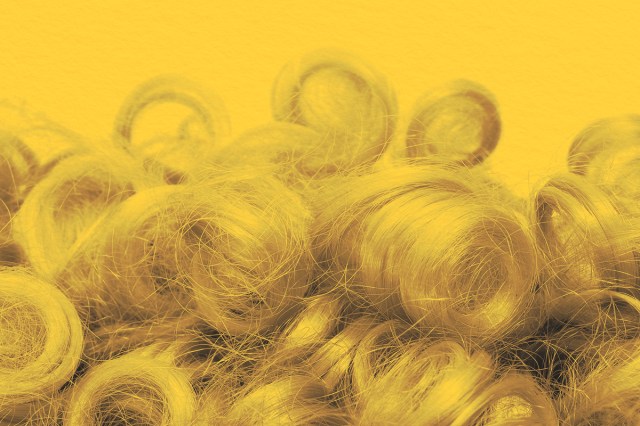
When you hear the word “Goldilocks,” it’s likely paired with the phrase “juuuust right,” rather than anything having to do with blond hair. This connotation goes to show the lasting power of a good story.
While “Goldilocks” has been a nickname for a person with bright yellow hair since the 1540s, the more modern idiomatic usage revolves around a fairy tale. It was first published by Robert Southey’s miscellany The Doctor in 1837, but the oral tradition is older. Originally, the familiar story starred a bad-tempered old woman, and then there was a similar story with a silver-haired woman. But the most favored version was about a golden-haired girl who enters the house of the Three Bears and declares the possessions of Baby Bear to be “just right” as compared to those of Father Bear and Mother Bear. It was this later version about a flaxen-haired heroine named Goldilocks that had more staying power in the cultural zeitgeist. So much so that nowadays, “Goldilocks” is a general descriptor for any sort of ideal condition in a range of fields. Let’s look at how we got here.
Good Hair Day
As a nickname for a yellow-haired person, “goldilocks” appeared in the 16th and 17th centuries with various spellings, including “govdelokis,” “goldie-lockes,” and “Goldylocks.” By the mid-19th century, the spelling had standardized to “goldilocks.” In 1875, a revamped version of Southey’s fairy tale was published in Fraser’s Mag: “Howard was the great, big huge bear, and Charlie was the middle sized bear, and I was the little, small wee bear, and the baby was to be the goldilocks.”
While this word was mainly used to denote blond hair, it also was used to describe various yellow-flowered plants, particularly buttercups, beginning around 1578. However, this usage has largely fallen out of favor, with the narrative of the golden-haired interloper taking over popular imagination.
Just Enough
Since the mid-20th century, “Goldilocks” has been used to designate a situation, effect, or circumstances as ideal, particularly when it comes to providing the most favorable balance between contrasting or opposing factors: Goldilocks choice, Goldilocks effect, Goldilocks principle, etc. The word usually appears capitalized, referencing the name of the girl in the fairy tale, and not a general nickname.
The fairy tale is often further referenced in association with the name “Goldilocks,” as in this 1949 example from the Sewanee Review: “The writer may include or leave out too much and so distort his vision. If successful the writer will find that he has made Goldilocks’ choice of a gruel neither too hot nor too cold, but just right.”
Since then, the term “Goldilocks” has been used with a specific meaning in a number of fields, including astronomy and economics. In astronomy, it designates a zone around a star in which conditions are thought to be suitable for planets to support life, being neither too hot nor too cold (or to describe a planet in such a zone). In economics, it describes the state of a national economy that is neither expanding too fast nor contracting, but displays ideal conditions of steady growth, low inflation, low interest rates, and more.
There you have it — the journey of “Goldilocks” from a gleaming physical descriptor to a figurative meaning of perfect averageness.















